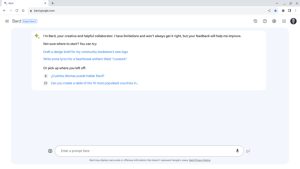Speakers from HashiCorp, Heroku, IBM, and RedHat used their Animal Crossing avatars to explain how to build a resilient developer community at the online conference.
One of my last adventures in the outside world was a trip to GameStop with my son to buy Animal Crossing: New Horizons on release day. This week I had another ACNH experience at the Deserted Island DevOps conference, a virtual event hosted on an Animal Crossing island and streamed on Twitch.
More than 10,000 people watched the stream that featured speakers from HashiCorp, Heroku, IBM, and RedHat, and topics that ranged from mob programming to building resilience in developer communities.
The point of the Nintendo Switch game is to build your own little world, complete with a house and clothing and daily routines like cooking. Aaron Aldrich, a speaker and developer advocate at LaunchDarkly, said that the game provides “just the right amount of seriousness and silliness” during the coronavirus pandemic, and this conference did the same thing.
Here is what I learned from the conference; you can experience it for yourself by watching the recorded sessions on Twitch.
Right place, right time
A DevOps conference set in a cheery pastel place about building a resilient community seemed to be exactly what people needed at this point in the COVID-19 lockdown. The comments in chat were overwhelmingly positive, and there were a few questions at the end of every session, always a good sign of audience engagement.
SEE: Tips for building a successful career as a software engineer (free PDF)
People watching the conference and commenting on Twitter via the #DIDevOps hashtag loved the format and the content: “I’m not even on Animal Crossing and I still think this is genius,” and “Nobody’s here to flex. Not a single person has said, ‘Hey look at this cool thing I built!’ It’s all about the team, the culture, and building empathy.” And, “Not only did I learn heaps about cloud stuff, it was a genuinely enjoyable experience.”
A compelling mash-up
Avatars in Animal Crossing sway gently back and forth when they stand still. They emit pink and yellow flowers to show happiness and excitement. Watching the avatars talk about servers and software development was surreal at first and generally a little unsettling if you have not played the game before. I got used to it pretty quickly, and by the end of the conference I found that I liked the odd combination of cartoony visuals, traditional slide presentations, and multiple channels for talking with other people at the conference.
Eight people can be on an Animal Crossing island at one time. The host of the DevOps conference built a classroom-style space for the conference. Speakers flew into the island and sat in the audience in the classroom. There was a laptop on the podium and a screen within the room for slides. Speakers toggled the screen back and forth between the slides and the Animal Crossing room.
The presentations were streamed in Twitch, which had its own chat stream, the event’s Discord channel featured hallway track, speaker Q&A, and general chat conversations, and there is the ever-present Twitter.
There are always back channel conversations at conferences; this one was particularly effective as speakers shared references from their talks and replied to questions quickly. Also, if you are a developer of a certain age who doesn’t know much about Animal Crossing, Twitch, or Discord, Deserted Island DevOps is free crash course in how these spaces work.
Developer advocates are creative people
Eight of the 12 speakers were developer advocates–people who work with software engineers inside and outside a company to help them be successful with their platform of choice. Many advocates started out writing software and then shifted to connecting engineering teams with developer communities.
Jacquie Grindrod, a developer advocate at HashiCorp, built a game to illustrate the concept of Raft, a Go library that manages a replicated log.
HashiCorp specializes in data center management, including application development, delivery, and maintenance. Grindrod applied DevOps concepts to her first experience in building a game, including scalable infrastructure, Infrastructure as code, and build and deployment consistency.
Grindrod’s game, Spack Hack, didn’t quite make it out of the development phase, but that wasn’t the only goal. She said that the value of the exercise was having fun while learning something new and reflecting on the process and connecting it back to her work as a developer advocate.
“The heart of building good DevOps culture is bringing systems and people together in a community that collaborates to solve problems,” she said. “We’re all here solving this problem together.”
Building a resilient community is key
As one person commented on the Twitch chat, “This talk is way deeper than I was expecting.”
Speakers spent as much time talking about the kind of work culture that creates high-performing teams as they did about technology.
In the morning, Ian Coldwater, the lead platform security engineer at Heroku, talked about how DevOps and security teams can work together. Software engineer and developer advocate at MongoDB Adrienne Tacke discussed failure and linked it to wasp stings, one of the bad things that can happen to humans in Animal Crossing.
Matt Stratton, a transformation specialist ata RedHat, described how to build a culture of psychological safety in his talk, “Kick ’em or Keep ’em: Collaborating on our own deserted islands.” Stratton used research from Google to explain how to build a work culture that encourages people to participate, including:
- De-escalating conflict
- Facilitating blameless postmortems
- Encouraging psychological safety in teams
- Replace blame with curiosity
- Model vulnerability
Aaron Aldrich, a developer advocate at LaunchDarkly, described what a resilient community looks like and how resilience engineering is part of that.
“Community building is resilience engineering, and that’s why developer relations is always thinking about that,” he said.
Aldrich emphasized that building resilience is a long-term investment, the work has to be done ahead of time, and that teams that do well in dealing with adversity have a strong common ground.
“Good communities are diverse, they have a high trust in safety, and they always want to sustain and repair themselves,” he said.
New logistics to master
This format had a few new challenges for experienced conference presenters. No one had to remember to take a personal laptop from the speaking podium, which is an advantage of the setting.
Presenters did have to control their avatars in Animal Crossing and manage slides at the same time, somewhat different from making eye contact with audience members and advancing slides.
To create a human audience for the presenters, the speakers were in a Zoom call together, a smart way to replace the “talking to the void” problem of online conferences.
Jessica Joy Kerr, a developer who attended the conference, said she would speak at an online conference in this format, but “Any other online format I’ve tried, you’d have to pay me to do again.”
Also see
” data-credit=”Image: TechRepublic” rel=”noopener noreferrer nofollow”>

More than 10,000 people checked out the Deserted Island DevOps conference that was presented in Animal Crossing New Horizons and streamed on Twitch.
Image: TechRepublic
Source of Article




